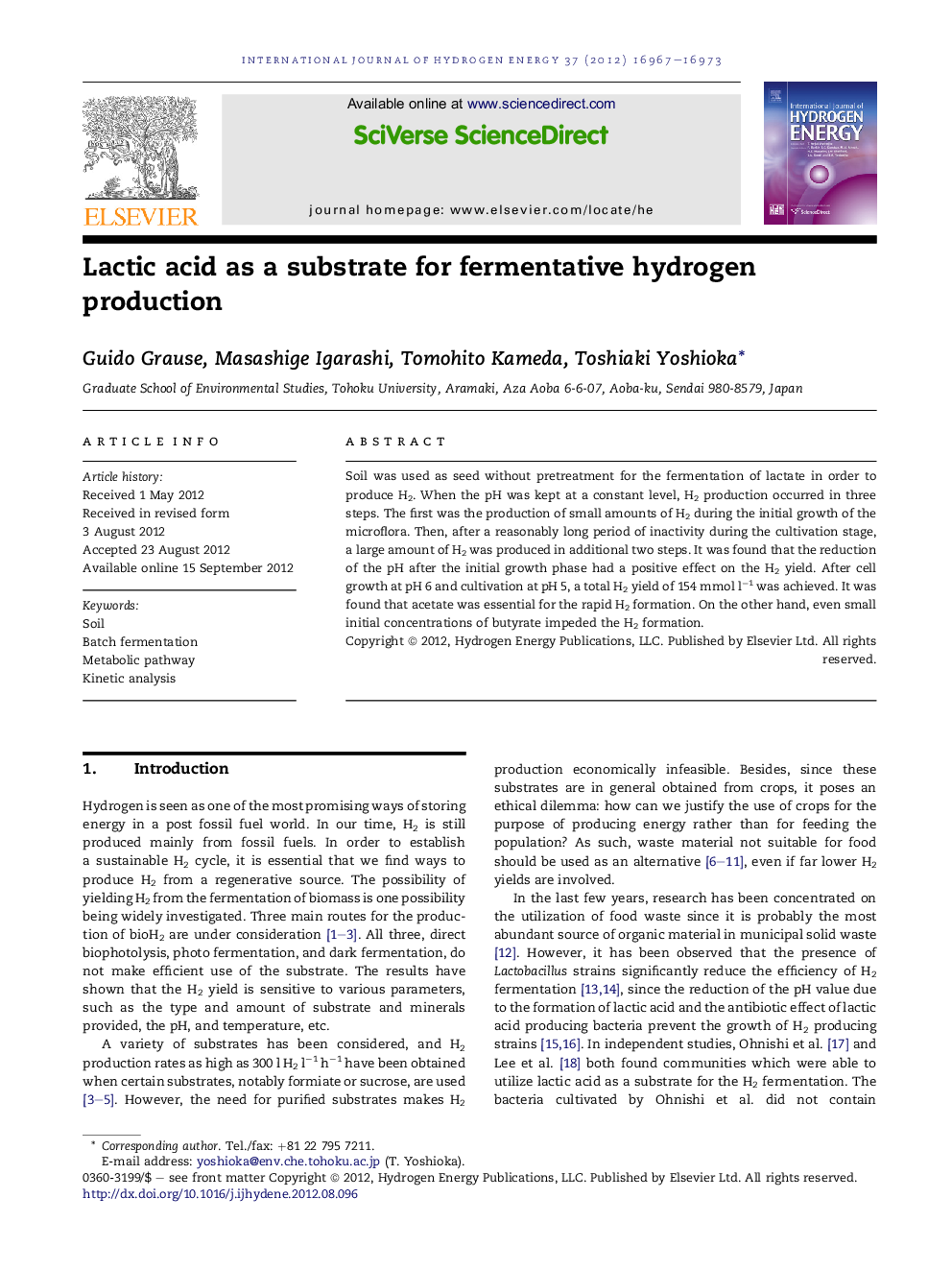| Article ID | Journal | Published Year | Pages | File Type |
|---|---|---|---|---|
| 1270878 | International Journal of Hydrogen Energy | 2012 | 7 Pages |
Soil was used as seed without pretreatment for the fermentation of lactate in order to produce H2. When the pH was kept at a constant level, H2 production occurred in three steps. The first was the production of small amounts of H2 during the initial growth of the microflora. Then, after a reasonably long period of inactivity during the cultivation stage, a large amount of H2 was produced in additional two steps. It was found that the reduction of the pH after the initial growth phase had a positive effect on the H2 yield. After cell growth at pH 6 and cultivation at pH 5, a total H2 yield of 154 mmol l−1 was achieved. It was found that acetate was essential for the rapid H2 formation. On the other hand, even small initial concentrations of butyrate impeded the H2 formation.
▶ Microorganisms from soil are capable of producing H2 solely from lactate. ▶ Reducing the pH after the initial growth phase maximizes the H2 yield. ▶ Reducing the pH prevents the formation of propionate and H2 loss. ▶ Presence of butyrate in the initial stage prevents H2 production.
